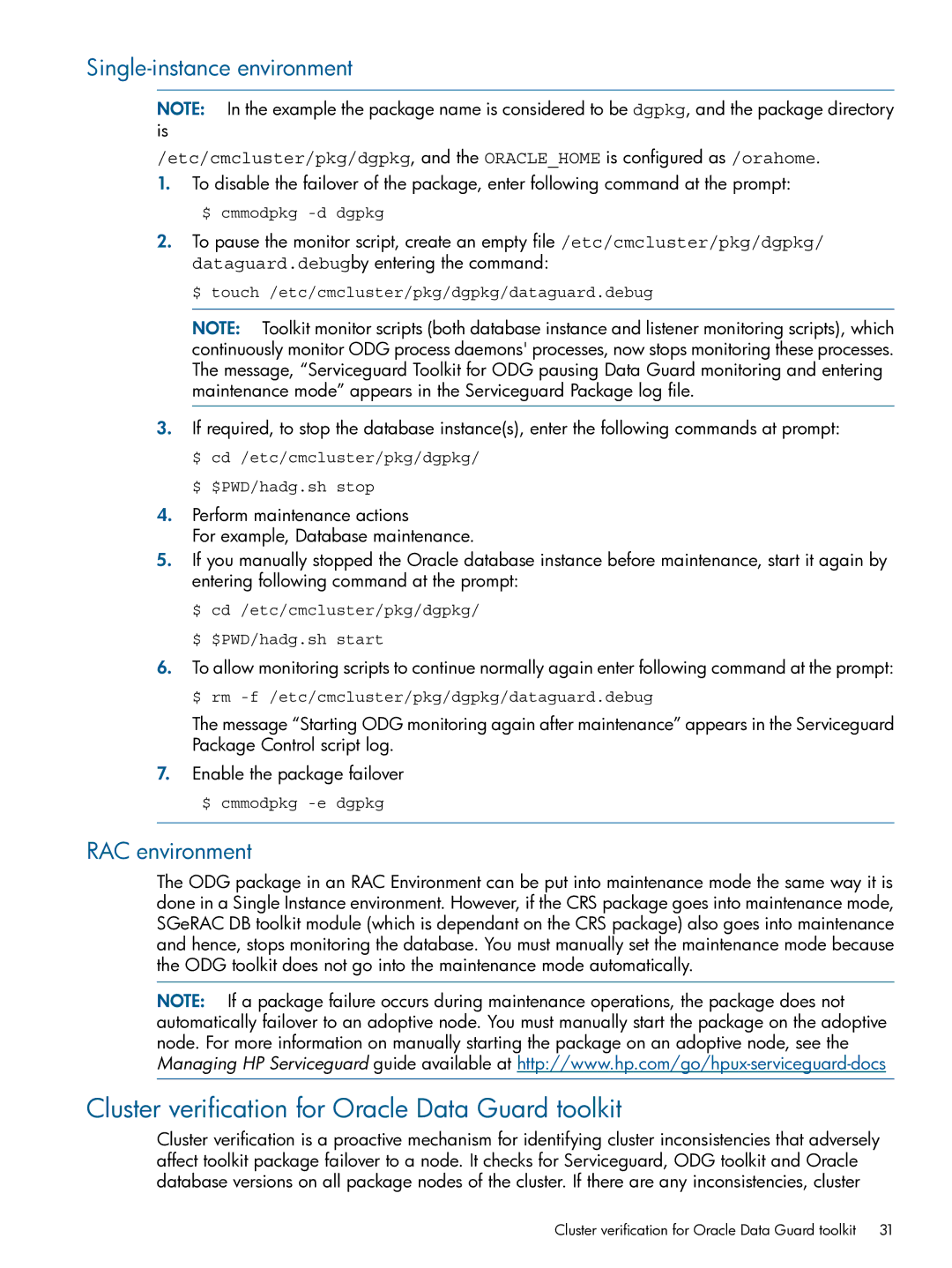
Single-instance environment
NOTE: In the example the package name is considered to be dgpkg, and the package directory is
/etc/cmcluster/pkg/dgpkg, and the ORACLE_HOME is configured as /orahome.
1.To disable the failover of the package, enter following command at the prompt: $ cmmodpkg
2.To pause the monitor script, create an empty file /etc/cmcluster/pkg/dgpkg/ dataguard.debugby entering the command:
$ touch /etc/cmcluster/pkg/dgpkg/dataguard.debug
NOTE: Toolkit monitor scripts (both database instance and listener monitoring scripts), which continuously monitor ODG process daemons' processes, now stops monitoring these processes. The message, “Serviceguard Toolkit for ODG pausing Data Guard monitoring and entering maintenance mode” appears in the Serviceguard Package log file.
3.If required, to stop the database instance(s), enter the following commands at prompt: $ cd /etc/cmcluster/pkg/dgpkg/
$ $PWD/hadg.sh stop
4.Perform maintenance actions
For example, Database maintenance.
5.If you manually stopped the Oracle database instance before maintenance, start it again by entering following command at the prompt:
$ cd /etc/cmcluster/pkg/dgpkg/ $ $PWD/hadg.sh start
6.To allow monitoring scripts to continue normally again enter following command at the prompt: $ rm
The message “Starting ODG monitoring again after maintenance” appears in the Serviceguard Package Control script log.
7.Enable the package failover
$ cmmodpkg
RAC environment
The ODG package in an RAC Environment can be put into maintenance mode the same way it is done in a Single Instance environment. However, if the CRS package goes into maintenance mode, SGeRAC DB toolkit module (which is dependant on the CRS package) also goes into maintenance and hence, stops monitoring the database. You must manually set the maintenance mode because the ODG toolkit does not go into the maintenance mode automatically.
NOTE: If a package failure occurs during maintenance operations, the package does not automatically failover to an adoptive node. You must manually start the package on the adoptive node. For more information on manually starting the package on an adoptive node, see the Managing HP Serviceguard guide available at
Cluster verification for Oracle Data Guard toolkit
Cluster verification is a proactive mechanism for identifying cluster inconsistencies that adversely affect toolkit package failover to a node. It checks for Serviceguard, ODG toolkit and Oracle database versions on all package nodes of the cluster. If there are any inconsistencies, cluster
Cluster verification for Oracle Data Guard toolkit 31
